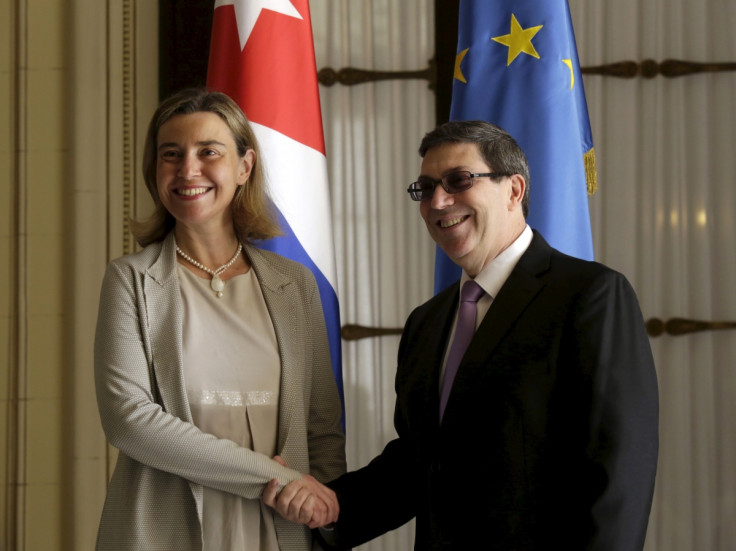Cuba and Europe sign 'historic' deal to normalise relations after a 13-year hiatus

Cuba and the European Union have signed a 'historic' agreement to normalise ties which could serve as a precursor to establishing full economic unity and aid to the Caribbean island. The deal comes as relations have thawed with the United States as Barack Obama prepares to arrive in Havana on 20 March.
France has also strengthened ties with the country earlier this year, when Cuban President Raul Castro met Francois Hollande in Paris during a two-day state visit. Hollande was integral in securing a breakthrough deal in December 2015, under which France, Havana's biggest creditor, loosened Cuba's foreign debt.
For over 20 years EU-Cuba relations have been strained over issues such as human rights and the one-party political system. But now the 28-member bloc is set to establish an ongoing political dialogue with Cuba which will set parameters for commerce and aid.
The new agreement will replace a unilateral policy imposed by Europe 20 years ago that angered Fidel Castro and other Cuban leaders by attempting to force Cuba to change the country's political system. The deal has taken nearly two years to broker and will need to be ratified by EU member states and Cuba.
Bruno Rodriguez, Cuban Foreign Minister, witnessed the signing of the landmark deal on Friday 11 March at a ceremony in Havana, along with EU foreign policy chief Federica Mogherini. "This is a historic day for bilateral relations," Mogherini said according to Al Jazeera, before EU negotiator Christian Leffler and Cuban deputy foreign minister Abelardo Moreno signed the deal.
Brussels suspended ties with Cuba in 2003 following the so-called "Black Spring" crackdown on anti-government activists. During March that year the Cuban state imprisoned 75 dissidents, that included 29 journalists, human rights activists, and democracy activists, accusing them of acting as agents of the US government by accepting aid.
President Obama is scheduled to visit Cuba later this month for the first trip by any current US president to the island in nearly 90 years. He is due to take in a US-Cuba baseball game, meet with Raul Castro and talk with government critics.
© Copyright IBTimes 2025. All rights reserved.






















